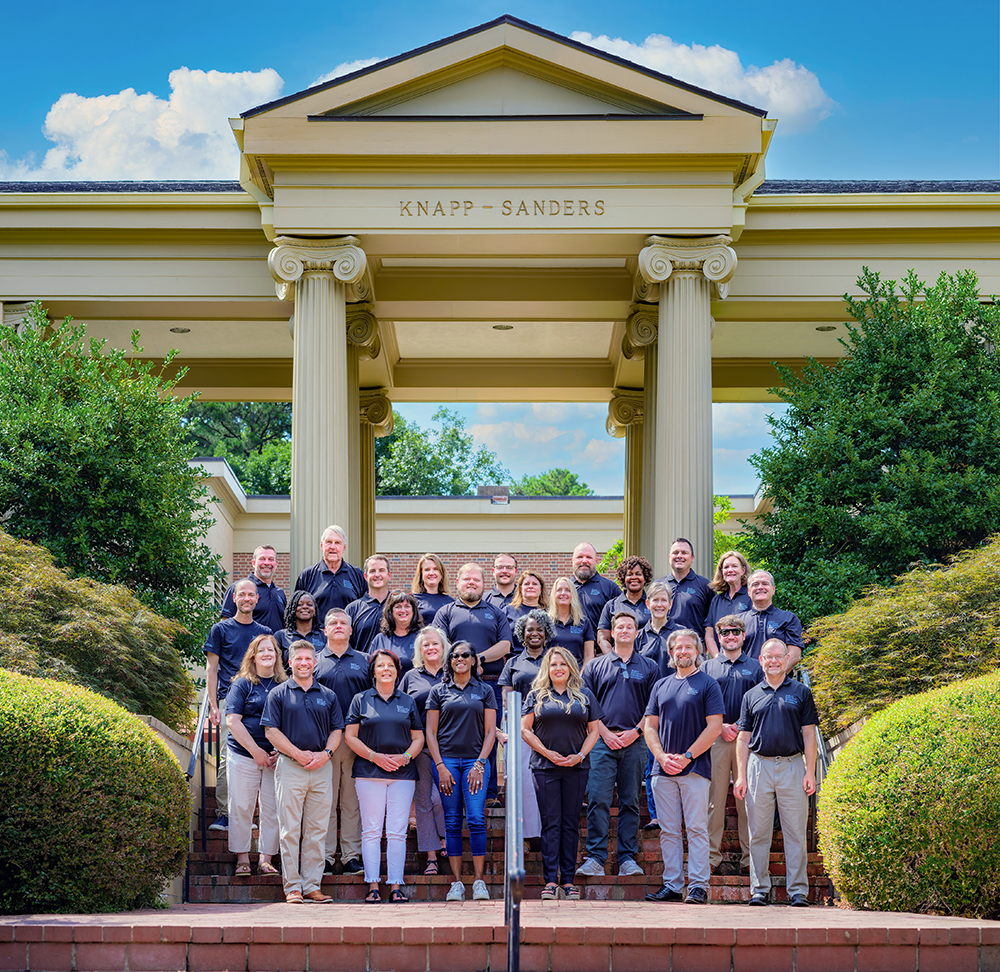Celebrating 20 Years of PELA, With an Eye Toward the Future
More than 20 years ago, members of the North Carolina City/County Management Association (NCCCMA) identified a need for advanced professional development. They envisioned a program that would serve the state’s senior executive leaders in local government: department heads, assistant managers, and managers. And when North Carolina’s local governments are in need, the UNC School of Government answers the call.
Their idea planted the first seeds of what would become the Public Executive Leadership Academy (PELA). The program was co-created by NCCCMA, the International City/County Management Association (ICMA), and the School of Government. These partnerships were instrumental to PELA’s development, guiding decisions from curriculum to cost and location. NCCCMA has also sustained PELA through financial support, including seed money and scholarships for tuition. Along the way, the program’s creation was shepherded by a diverse cast of stakeholders, including faculty member and PELA founder Carl Stenberg.
“I think we’ve been really fortunate over the years to have support from NCCCMA,” Stenberg said. “It’s particularly gratifying when we go to association meetings and see so many of the senior managers are PELA graduates. The program has been tweaked every year, but it has sustained itself.”
In 2024, PELA celebrates 20 years of transformative leadership training for local government leaders. It also marks a time of change for the program: Stenberg stepped down as faculty lead in 2023 after two decades of commitment to the program. Faculty member Kimberly Nelson will take the helm of the program this summer after serving as a PELA instructor since 2014.
“PELA is really Carl’s heart and soul,” Nelson said. “His commitment to working with local government managers and professionals shines through in everything he’s done with the program.”
The School of Government offers a range of courses and curriculums designed to support leadership development in public service. But PELA has its own unique lens for senior executive leaders. It focuses on community leadership skills and includes a variety of sessions covering topics like systems thinking, media training, resilience, and burnout prevention.
The program also encourages participants to think outside their own communities. Modern government is a complex web and challenges cross neighborhood, jurisdictional, and regional boundaries. PELA works collaboratively with participants, equipping them to identify opportunities, lead change across public sectors, and care for themselves and their teams. This intergovernmental emphasis is a hallmark of Stenberg’s influence and represents an important part of PELA’s value.
Nelson joined the PELA team after her arrival at the School of Government in 2013. It was a logical fit in part because of her scholarship on local government management. But her role grew over time in no small part because of her passion and investment in the program.
“It’s a fantastic way to get to know local government leaders across the state,” she said. “It’s very rewarding when we get to work as coaches with these leaders. We can help them when they’re experiencing challenges and see them develop in their careers over time.”
Nelson’s work with PELA translates outside the confines of the classroom. She has found her PELA experiences form a symbiotic relationship with her academic research on local government management, form and structure, and corruption. That expertise finds its way into her PELA teachings, inspires new research ideas, and influences her work educating UNC MPA students.
“That’s the great part about being an academic at the School of Government,” Nelson said. “I can draw on practical experiences and really ground my research on what’s happening in local governments right now.”
While Nelson is taking over leadership of the program, she emphasized that developing a long-term vision for PELA will remain a team effort. Charting the course for the program involves not only other faculty members, but also PELA alumni and NCCCMA members. This year, Stenberg will remain on board as a coach alongside faculty members Rick Morse and John Stephens. Faculty member Kimalee Dickerson will also assume a full coaching role this year.
Nelson and the PELA team are hard at work on a “reboot” of the program curriculum, a regular process that takes place every five years. The input of practitioners and PELA alumni is key to the program’s evolution. Because the program was originally developed with NCCCMA, the association remains engaged with the evolution of the PELA curriculum. Among the expected changes this year are an increased emphasis on managing community collaborations and facilitation activities.
This collaborative stance connects to the heart of PELA and the program’s roots in responsiveness. It emerged as a request from the state’s city and county managers, and it continues to respond to their evolving needs more than two decades later.
“The key for PELA is to always adapt to the needs of our local government professionals,” Nelson said. “We don’t make unilateral decisions about what they should learn. We collaborate with managers to make sure we’re reflecting their needs and desires.”
Applications for PELA are now open! If you’d like to learn more about the program, visit the PELA course page.
Published March 14, 2024


